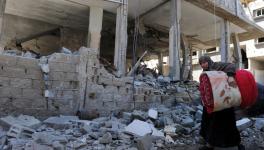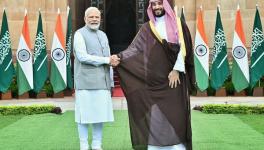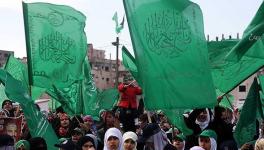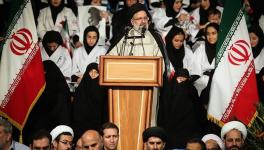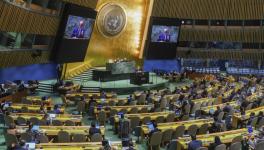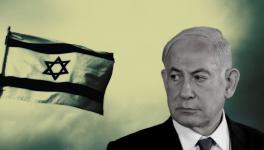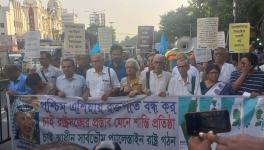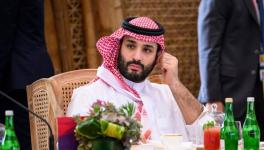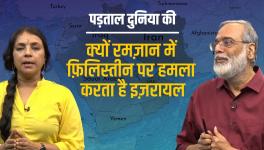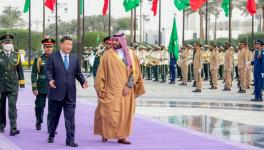A Nation of Pain and Suffering: Syria (Part 2)
Our enemies did not cross our borders
They crept through our weakness like ants.
-- Nizar Qabbani, “Footnotes to the Book of Setback”
(Hawamesh ‘ala Daftar al-Naksah), 1967.
II. Neighbors.
As the refugees pour into Syria’s neighbors, tensions come with them. The most thorough report on these tensions was written by the International Crisis Group, whose A Precarious Balancing Act: Lebanon and the Syrian Conflict (November 22, 2012) is probably being scrutinized very closely not only in Beirut, but also in Amman, Ankara, and Baghdad. The “combination of heightened insecurity and continued state impotence” in Lebanon, says the ICG, has led to non-state action – abductions, assassinations, and the creation of beltways to send arms into Syria. ICG exaggerates the arms deliveries. Credible reports show that these are tiny and often without impact.
These deliveries are mainly of small arms, not the kind of heavy artillery that only a state can provide to the rebels. There is certainly the scandal of former journalist, Hariri chevalier, and Saudi courier ‘Uqab Saqr. Caught on tape (released by al-Akhbar), Saqr said he was involved in funneling arms, including rockets, into northern Syria from Lebanon and Turkey. (He denies this, saying that he is actually sending in blankets and milk for babies). The rebels begged him, implored him to fill their arsenal; he was aloof and nasty. It was a window into the kind of operation that the Kingdom of Saudi Arabia runs.
The arms pipelines from northern Lebanon and the entry of terrified refugees have agitated the country. In Tripoli armed clashes across the Syrian divides continue, most recently on 9 December when at least six died in the gunfire.
The ICG’s exaggerations and omissions can be set aside for a moment. What the ICG report reveals is the atmosphere of fear that has begun to pervade the policy community.
The “stakes are too grave for Lebanon – the most vulnerable of Syria’s neighbors,” says the ICG, but they are no less grave for Turkey and Jordan. With a flare-up of the conflict between Ankara and the Kurdish Workers’ Party (PKK), and with the fragile authority of the Jordanian monarch tested by the recent protests, there is little comfort in Erdogan’s cabinet and in Abdullah II’s Privy Council. For Jordan, there are few pleasant memories of the uprisings in its substantial camps that ring Amman. The revolts of early November over inflation came from these areas, where suffering and protest has become a way of life for the Palestinians, whose new Syrian neighbors might learn their customs.
Turkey took the most advanced policy in favor of the rebellion. Ankara hoped that the Assad regime would crumble, but as the military phase of the rebellion went over a year with limited impact, the Erdogan cabinet balked. Assad, who had in 1998 thrown out the PKK leader Abdullah Ocalan at the behest of Turkey, now pivoted in the other direction. He cleverly ceded northeastern Syria to various Kurdish groups, who are not averse to the PKK. Assad set a grave chess problem for Erdogan – increased PKK activity in Turkey derived from confidence about the new safe zone in Syria and threatened Erdogan with mayhem (violence broke in Hakkari province, with the PKK seizing control of Semdinli, and in Gaziantep province, where a bomb blast in the main city in August rattled the government).
Turkey’s standoff against Syria over the mortar attacks in October was a final gasp. Ankara turned quickly to Brussels. NATO headquarters had signaled no interest in the conflict, but the Turks wanted some kind of assurance. A promise of defensive batteries was the best that could come. Six Patriot batteries, two from each of the agreeable NATO states (German, Netherlands and the US), will take several weeks to set up and will not come anywhere near being sufficient to defend Turkey’s 560-mile border with Syria. It is an utterly symbolic gesture.
Turkey had gone ahead of the West in its call for the removal of Assad, and found, to its surprise that no Western power was willing to follow it. The geopolitical dynamics are not clear-cut. The Europeans and the US would like to manage a transition from Assad to another strongman and to maintain Syria’s role as the security guard for Israel’s northern border (since 1973). The West is not averse to political Islam in power, just as long as the new rulers properly manage the situation to the West’s advantage. The US and the Europeans were quick to come to terms with the Muslim Brotherhood and al-Nahda. What they fear are the less manageable Islamists, the brigands who drive rough across the Libyan countryside, or who might emerge out of the bowels of the Syrian resistance. This latter option has led policy makers in Washington and Brussels to be circumspect about the opposition in Syria.
The US has affirmed its intention to ban the Jabhat al-Nusra (Front for the Aid of the People of the Levant), which seems to have a very small number of members. Al-Nusra and Ahrar al-Sham (Free Men of Syria) appeared in early 2012, conducting massive bombing campaigns against military targets in Aleppo and elsewhere, which is what inflated their influence. The State department let squeak that the banning of al-Nusra should send a signal that the US would like to set aside the Islamists in the Syrian opposition and bring the liberals to the forefront. Such a policy was followed in Libya as well, where the Islamists were used to fight the Qaddafi regime and then attempted to be corralled after his fall.
Word comes from Aleppo that al-Nusra and its partners have put into place an ambitious plan to set up a jihadi social order. The International Crisis Group released a report in mid-October, Tentative Jihad: Syria’s Fundamentalist Opposition, which provides a clear-cut assessment of the reasons for their growth. “Conditions were favorable,” writes the ICG, with Salafi preachers reaching out to the dislocated rural underclass, and as the violence escalated and hope for a resolution receded, “many flocked to Salafi alternatives.” As the Western bombers did not appear to pulverize Assad’s army, these groups found material support amongst the private money from the Gulf Arabs who “bolstered both the Salafis’ coffers and their narrative, in which Europe and the US figure as passive accomplices in the regime’s crimes.”
Small outfits such as al-Nusra shrink before the much more influential and largely unreported Syria Liberation Front (SLF). The SLF, unlike the Syrian National Army, is a platform for the various jihadi currents, funded by the Gulf Arabs and the Muslim Brotherhood, whose own vehicle, Liwaa al-Tawhid, has steadily built up its networks from its exile bases after being devastated in the 1980s. Aron Lund, author of Drömmen om Damaskus (The Dream of Damascus, SILC Förlag 2010) and regular contributor to SyriaComment, notes that these platforms have “an outsized political role, by pushing the parameters of the conflict towards sectarian violence and coloring international perspectives on the uprising.” This latter point is significant. Such news rattles Washington, where there is little appetite for the kind of blowback that all but a handful of Senators (McCain is the main doubter) fear might come from too generous support to such groups. Even if there is scaremonge
Get the latest reports & analysis with people's perspective on Protests, movements & deep analytical videos, discussions of the current affairs in your Telegram app. Subscribe to NewsClick's Telegram channel & get Real-Time updates on stories, as they get published on our website.









